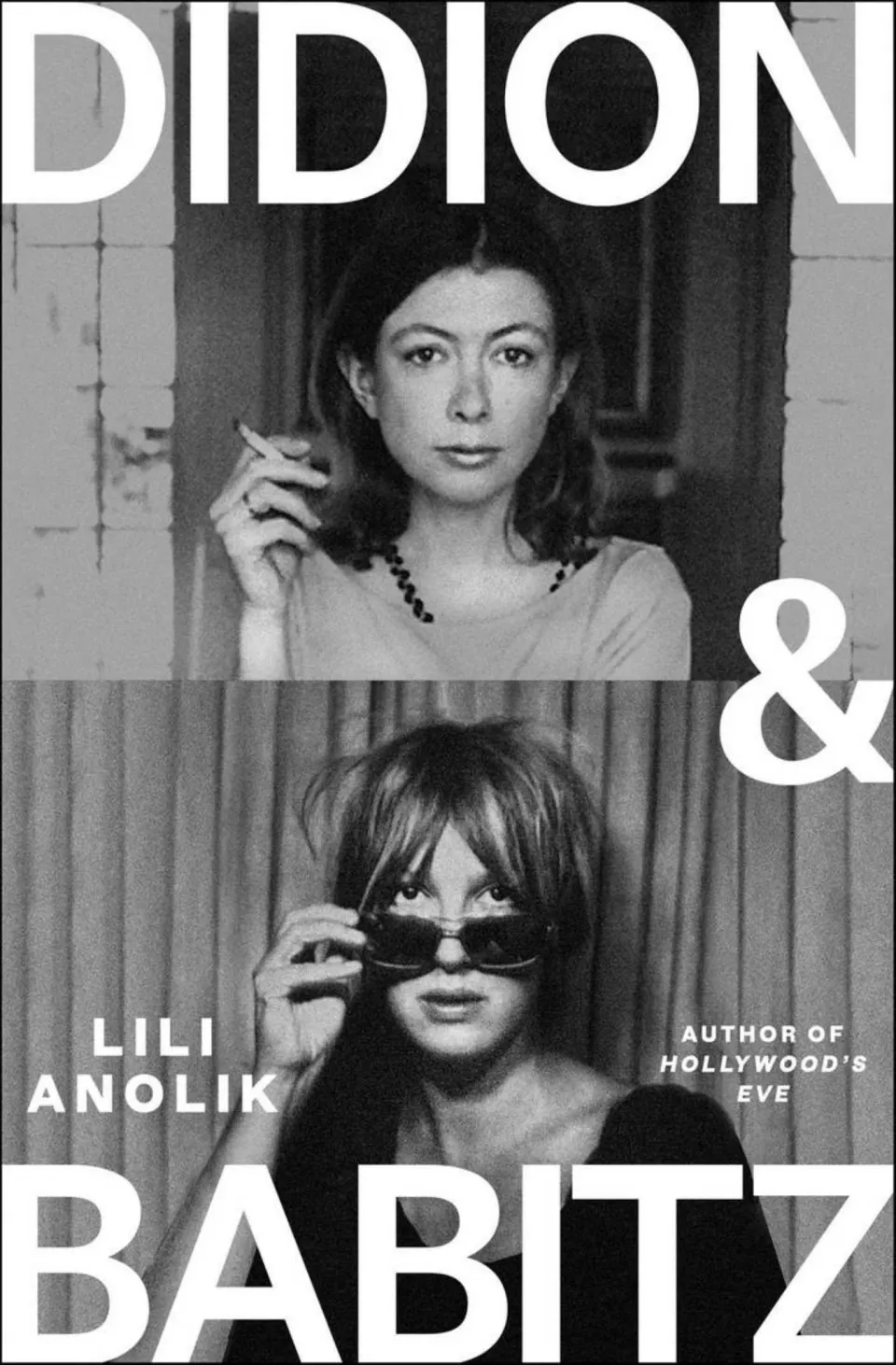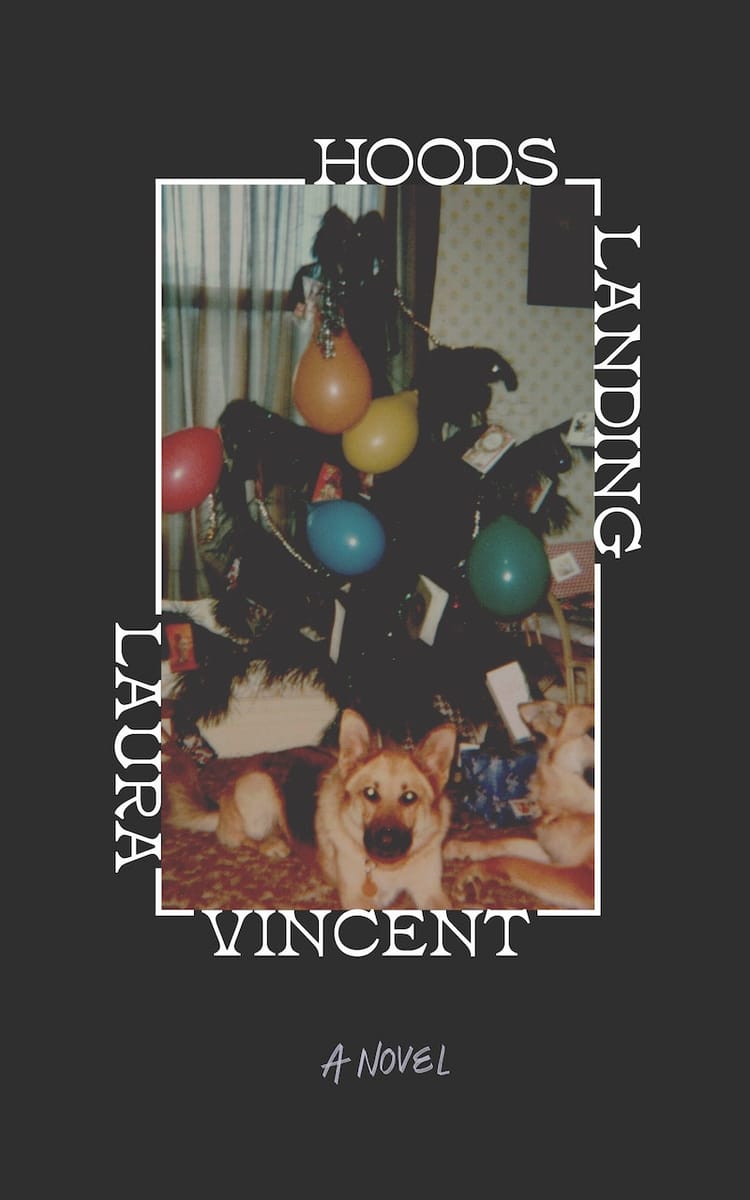Critical Corner: Didion and Babitz

It’s not often that I read a book that I outright hate. This is due to a pretty robust process of self-selection – I have trusted sources for recommendations that offer me a wide enough range of genres and forms – and a blessed sniff test when it comes to book. Trust, you can and should judge a book by its cover.
I didn’t expect to hate Didion and Babitz, the latest offering from Lili Anolik, who is credited for the revived interest into Eve Babitz, a non-fiction writer, journalist and personality who wrote a few collections of short stories in the 70s. Her Vanity Fair piece on Babitz led to a biography, Hollywood’s Eve, a pretty fun read that was as much about Babitz as Anolik’s interest in it. Anolik’s writing is zippy and enjoyable, but I finished it feeling like the book was trying too much to justify her own interest in Babitz; she spends a lot of time pumping up her subject’s greatness, as though Babitz being a normal, flawed, human might mean she’s less worthy of being written about.
If I put that book down with a feeling, I put Didion and Babitz down with a certainty. It probably isn’t too surprising at this point that Anolik’s book is about Joan Didion, who needs very little introduction to anybody who subscribes to a newsletter that reviews books, and Babitz, the subject of the aforemention Hollywood’s Eve. The pair had a friendship, with Didion working as an editor on one of Babitz’s books, and Anolik’s mission is to compare the two, and to analyse their success, their cultural cache, and character.
It’s not an uninteresting mission; there’s a lot of room for literary comparison in non-fiction, and examining why certain authors were appreciated both in and after their time. What makes Didion and Babitz as terribly flawed as it is though, is Anolik’s approach to both subjects, and her tenuous reason to connect them at all (an unsent letter hidden away in a box). Simplified: Anolik has very little time for Didion or her writing, and a lot of sympathy for Babitz. (This may not be surprising; journalists are invariably more favourable to people who speak to them than those who don’t, and the amount of access Anolik had to Babitz is pretty unprecedented.)
To her credit, Anolik is up front about this preference. It opens with the sentence, “If this intense fascination is love, then I loved Eve Bavitz.” About two thirds through, she reiterates that she has never cared for Didion. All the way throughout, Didion’s chapters are titled like tabloid mag pieces (“Joan Didion’s (True) Origin Story”) and gossip from dubious sources (Bret Easton Ellis, amongst others) is treated as gospel. Babitz is written about as an unappreciated, if flawed, genius, while Didion is given qualifiers like: “Thomson’s story shows what Joan was willing to do for the sake of her writing (anything) and what it cost her in a human sense (everything).”
Later, Didion’s bestselling masterwork about grief is labelled as being about Didion, rather than about her husband, which feels as much like Anolik telling on herself. Every quote about Didion, every “misstep” she made in her life is added to the ledger against the author, while Babitz’s own behaviour, such as a late-in-life swerve into Republicanism, is shrugged off and skated past.
This is understandable, on a personal level. The mathematics of gossip is addictive. It’s fun to take a few stories, and solve for x. It’s also easy to believe bad things about people we like, and whose work we like less. It’s even easier to justify the actions, and the work, of people we like. That doesn’t make for a good read, however, and by the end of it, I found myself wondering how much Anolik must have resented that this book is called Didion and Babitz rather than Babitz and Didion.
A more accurate title is probably Didion, Babitz and Anolik. Look, I struggle with the ethics of journalism more than I do the ethics of literary criticism. "What right do I have to tell someone else's story?" is a thornier question than "What right do I have to critique someone else's art?" With this book, Anolik tries to do both and stumbles - badly. It's not necessarily that I disagree with her assessment of either author's work, both women tell on themselves in their writing constantly (as do we all), but in her efforts to compare and contrast them, she tells us much more about herself than she does about either of them. It's not so far off a child mashing action figures together while telling you their intricate backstory, it's all through her lens, with the details she finds most interesting and relevant.
You should trust a book by its cover. On this one, the most famous photo of Didion, one of the most famous non-fiction authors of all time, sits above an obscure photo of Babitz, still obscure amongst the majority of the reading public. Didion’s the sell for this book, Babitz the undertow.
Neither image tells the full story.

Other Things I’ve Consumed
- I watched Babygirl, and didn’t enjoy it as much as I wanted to. A rare Kidman misstep.
- I read Andrea Long Chu’s Females, and enjoyed it much more than I thought I would. Part memoir, part investigation/interrogation of Valerie Solanos, it made me think about my own work more intensely.
- I have been playing Dynasty Warriors Origins a lot, and I want to write about it seriously and critically. It’s the most audacious Warriors game perhaps ever, and it might change the way that Romance of the Three Kingdoms is interpreted, in game form, forever.
- Weetbix! I’m into Weetbix.
Things to Read
- I’ve been fascinated by Lady Gaga since listening to “Just Dance” on my Nokia phone in a swimming pool parking lot way back in 2008 (yes, it’s that memorable and vivid an image), and even though I haven’t enjoyed everything she’s ever done, there’s not a modern popstar who matters more to the public’s understanding of what pop music can be (Madonna is exempt, and above, the label of pop music). Be Kind Rewind’s video essay on her acting, and her relationship to authenticity, is one of the best analyses on her I’ve ever watched. I’m not a video essay guy generally, but I can’t recommend this “read” higher.
- If you’re someone who gets inspired by academic-but-conversational film criticism, may I point you towards Reverse Shot’s Best of 2024, and Reverse Shot in general?
Self-Promo
- If you’re in Tāmaki Makaurau, I’m running a playwriting course in March! You can find more details here, and feel free to share if you think anybody you know would be interested.
- I start rehearsals tomorrow for a play called From Another Woman, which is on at Basement Theatre from February 27 to March 1. Book tickets if you like!





Member discussion